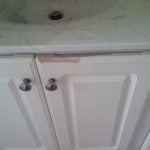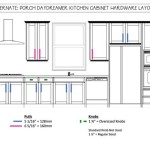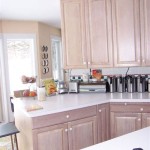Do I Need a Primer to Paint My Kitchen Cabinets?
When it comes to refreshing the look of your kitchen, painting your cabinets is a popular and budget-friendly option. However, one of the biggest questions homeowners face is whether or not to use a primer before painting. While it might seem like an extra step, using a primer offers several significant benefits that can enhance the overall quality and longevity of your paint job.
What is a Primer?
A primer is a specialized coating applied before paint to prepare the surface for optimal adhesion. It acts as a bridge between the surface and the paint, creating a smoother and more uniform finish.
Why Use a Primer on Kitchen Cabinets?
Here are some key reasons why using a primer is essential for painting kitchen cabinets:
- Improves Adhesion: A primer creates a strong bond between the cabinet surface and the paint, ensuring that the paint adheres properly and lasts longer.
- Blocks Stains and Odors: Kitchen cabinets can accumulate stains and odors over time. A primer helps seal these in and prevents them from bleeding through the paint.
- Provides a Uniform Finish: Primer fills in imperfections on the cabinet surface, creating a more even and professional-looking finish.
- Reduces Paint Coats: By creating a smooth base, a primer reduces the number of paint coats required, saving you time and money.
- Protects Cabinets: Primer adds an extra layer of protection to your cabinets, making them more resistant to wear and tear.
When to Skip a Primer
In some cases, it might be possible to skip a primer if:
- Cabinet Surface is in Excellent Condition: If your cabinets are relatively new and have a smooth, clean surface, you may not need a primer. However, it's still recommended to lightly sand the surface for better adhesion.
- Painting with the Same Color: If you're painting your cabinets the same color as they currently are, a primer may not be necessary, especially if the original paint is in good condition.
Choosing the Right Primer
When selecting a primer, opt for one specifically designed for cabinets. These primers are typically water-based and provide excellent adhesion and stain-blocking properties. Look for primers with a light color to minimize the risk of color bleed-through.
Conclusion
While painting kitchen cabinets without a primer is possible, it's not recommended. Using a primer offers numerous advantages that can enhance the durability, appearance, and longevity of your paint job. By investing in a high-quality primer and following proper application techniques, you can achieve a stunning and lasting finish for your kitchen cabinets.

How To Paint Kitchen Cabinets A Step By Guide Confessions Of Serial Do It Yourselfer

What You Need To Know Before Painting Cabinets The Palette Muse

Refinish Kitchen Cabinets With Kilz Restoration Primer

How To Paint Kitchen Cabinets A Step By Guide Confessions Of Serial Do It Yourselfer

How To Paint Kitchen Cabinets Without Sanding Or Priming

A Year In Review Of How I Painted My Laminate Cabinets With Two Methods

How To Prime Cabinets For A Smooth Finish The Turquoise Home

Avoid These Mistakes How To Paint Cabinets That Are Already Painted Grace In My Space

The Complete List Of Supplies Needed To Paint Cabinets

Painted Kitchen Cabinets One Year Later The Palette Muse
Related Posts








